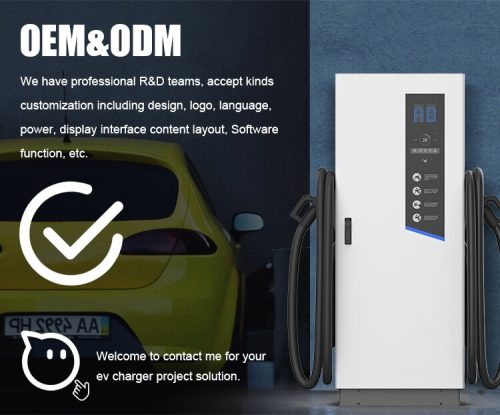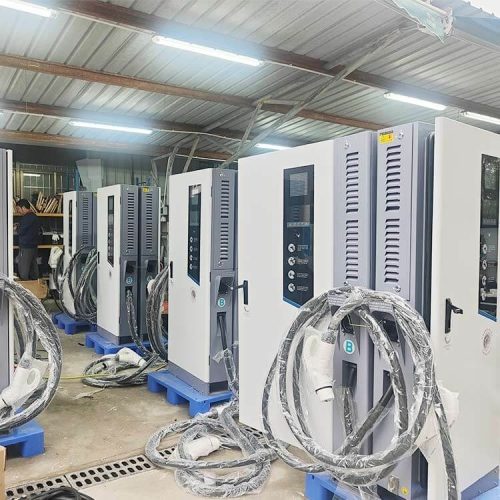The Rise of Electric Recharge Station: A Game-Changer for Electric Vehicles
A Game-Changer for Electric Vehicles: The Rise of Electric Recharge Stations
As the globe struggles with the environmental problems caused by conventional gasoline-powered cars, the automotive industry has seen a dramatic transition towards electric vehicles (EVs) in recent years. The fast spread of electric recharge station, changing the game for EVs, is one of the major forces behind this revolution. The electrification of transportation has led to the emergence of electric recharge stations, also known as charging stations or EV charging points, as a crucial infrastructure element. These charging stations solve some of the major issues that have previously prevented the mainstream adoption of electric cars by offering EV owners a simple and dependable way to recharge their vehicles.
- The importance of convenience cannot be stressed in the first place. EV charging stations are quickly becoming a regular sight in metropolitan areas, in contrast to petrol stations, which are always present. Because of the expanding infrastructure for charging electric vehicles, owners no longer have to be concerned about the "range anxiety" frequently related to them. Instead, people may charge their vehicles at their homes, places of employment, or at a charging station while they go shopping, eat, or rest while travelling.
- Additionally, charging now happens much more quickly. Technology improvements have made it possible to charge EVs considerably more quickly than in the past. Level two and DC fast chargers may deliver a sizable charge in minutes, whereas conventional Level One chargers may take hours to recharge a vehicle's battery. Due to the shorter charging times, EVs are now more viable for long-distance and daily driving.
- Another important selling factor for electric recharge station is their favourable environmental effects. Compared to using gasoline, the greenhouse gas emissions from charging an EV are substantially lower. The carbon footprint of charging EVs continues to drop as more energy generation turns to renewable sources, making them an even more ecologically responsible choice. Developing charging stations may also aid in employment growth and local economic stimulation.
- The cost savings of charging an EV instead of refilling a gasoline-powered car is a further important factor. Electric vehicle owners will have reduced operating expenses as a result of the fact that electricity often costs less per mile than gasoline. In addition, several governments and energy providers provide incentives and rebates to promote the use of electric vehicles, significantly lowering the initial investment.
What's the fastest a DC charger can enable charging?
How quickly an EV charges using DC charging depends on several factors. A rechargeable car may be charged significantly more quickly with DC power than AC power, thanks to the charging station's built-in AC or DC converter. How quickly a car charges using DC charging depends on the battery's output current, the surrounding temperature, the charge level, and the charging capacity.

- Energy Output:
Investing in a 60 kW DC EV charging station is essential for those who own electric cars. Utilizing its rapid charging capabilities is the most efficient quick charging approach. For instance, your range will increase by 130 km and 480 km, respectively, if you charge for 15 minutes at 100 kW and 350 kW outputs. A passenger car's range might improve by 278 km in one hour of charging at 50 kW. Different automobiles require different amounts of force to be driven.
- Battery Level:
The last 20% of the battery charge takes much longer due to safety precautions and efforts to extend battery life. The time it takes for a battery-operated to reach 100% completion may be similar to the first 80% charge since DC quick charging fills up an electric car battery in 80% less time than AC charging.
- Weather:
Wherever you charge an electric vehicle, the local weather may impact how quickly it charges. The considerable sensitivity of EV lithium-ion batteries to low temperatures means that cold weather can substantially impact charging times.
Powering the Future of Mobility with a 60 KW DC Fast Charger for Electric Vehicles:
Innovation is essential to advancing the adoption of electric vehicles (EVs) in the rapidly changing environment of EV charging infrastructure. The Kinouwell 60KW Electric Vehicle DC Fast Charger Charging Station with OCPP1.6J is a noteworthy advancement. The future of environmentally friendly transportation is greatly influenced by this cutting-edge charging station, which marks a substantial advancement in the field of electric recharge station.

- Lightning-Quick Charging:
The Kinouwell 60KW DC Fast Charger lives true to its name by providing owners of electric vehicles with a quick and effective charging experience. This charging station can quickly charge EVs significantly thanks to its remarkable 60-kilowatt power output. Long charging periods are one of the main worries for prospective EV purchasers, which this high-speed charging capacity addresses.
- 6J Compatibility:
The Open Charge Point Protocol (OCPP) 1.6J compatibility of the Kinouwell charging station is one of its unique characteristics. A crucial part of the growing EV charging infrastructure is OCPP, a standardized communication protocol that facilitates smooth communication between charging stations and other network management systems. The Kinouwell charger supports OCPP1.6J, enabling dynamic and intelligent communication between the station and network operators. As a result, managers may update the charging stations remotely, monitor charging trends, and acquire vital information about the condition of the stations. The interoperability of the Kinouwell charging station with OCPP1.6J means that it is not only a solo device but also a fully integrated component of an intelligent and connected EV charging network.
- Accessibility and adaptability:
The adaptability of the Kinouwell 60KW Electric Vehicle DC Fast Charger was considered during design. It can accommodate various electric cars, including those made by different manufacturers, and is furnished with CHAdeMO and CCS (Combo) connections. This adaptability makes it possible for more EV users, regardless of the brand or model of their car, to benefit from this fast-charging option. This charging station is also appropriate for various places, including freeways, cities, businesses, and fleet charging stations. Because of its durable build and weather-resistant design, it is a dependable option in various environmental settings, improving accessibility and dependability for EV users.
Conclusion:
The KINOUWELL electric recharge station with OCPP1.6J is proof of the industry's continuous innovation and advancement in infrastructure for charging electric vehicles. It is a standout option for EV owners and charging network operators because of its lightning-fast charging speed, OCPP1.6J compatibility, adaptability, and user-friendly design. Innovations like this will pave the way for a cleaner and greener tomorrow as the globe moves faster toward electrification and sustainable transportation.

